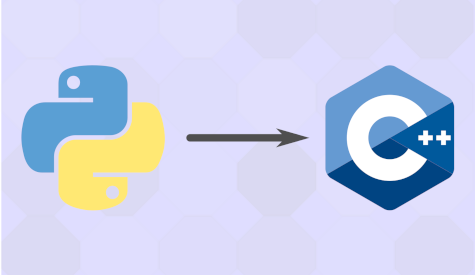A quick introduction how to use SciNet and the Niagara and Mist supercomputers.

A quick introduction how to use SciNet and the Niagara and Mist supercomputers.

A quick introduction how to use SciNet and the Niagara and Mist supercomputers.

In about 90 minutes, learn how to use the SciNet systems Niagara and Mist, from securely logging in to running computations on the supercomputer. Experienced users may still pick up some valuable pointers.
Format: In-person, as well as broadcast and recorded.
This is a newly updated version of the self-guided course as of April 2025.
At your own pace, learn how to use the SciNet systems Niagara and Mist, from securely logging in to running computations on the supercomputer. Experienced users may still pick up some valuable pointers.
Working with many of the HPC systems (like those at SciNet) involves using the Linux/UNIX command line. This provides a very powerful interface, but it can be quite daunting for the uninitiated. In this half-day session, you can become initiated with this course which will cover basic commands. It could be a great boon for your productivity.
Format: Virtual
Working with many of the HPC systems (like those at SciNet) involves using the Linux/UNIX command line. This provides a very powerful interface, but it can be quite daunting for the uninitiated. In this half-day session, you can become initiated with this course which will cover basic commands. It could be a great boon for your productivity.
Format: Virtual
Working with many of the HPC systems (like those at SciNet) involves using the Linux/UNIX command line. This provides a very powerful interface, but it can be quite daunting for the uninitiated. In this half-day session, you can become initiated with this course which will cover basic commands. It could be a great boon for your productivity.
Format: Virtual
Working with many of the HPC systems (like those at SciNet) involves using the Linux/UNIX command line. This provides a very powerful interface, but it can be quite daunting for the uninitiated. In this half-day session, you can become initiated with this coursse which will cover basic commands. It could be a great boon for your productivity.
Format: Virtual
Working with many of the HPC systems (like those at SciNet) involves using the Linux/UNIX command line. This provides a very powerful interface, but it can be quite daunting for the uninitiated. In this half-day session, you can become initiated with this course which will cover basic commands. It could be a great boon for your productivity.
Format: Virtual
Working with many of the HPC systems (like those at SciNet) involves using the Linux/UNIX command line. This provides a very powerful interface, but it can be quite daunting for the uninitiated. In this half-day session, you can become initiated with this course which will cover basic commands. It could be a great boon for your productivity.
Format: Virtual
Working with many of the HPC systems (like those at SciNet) involves using the Linux/UNIX command line. This provides a very powerful interface, but it can be quite daunting for the uninitiated. In this half-day session, you can become initiated with this coursse which will cover basic commands. It could be a great boon for your productivity.
Format: In person, but also broadcast and recorded.
Working with many of the HPC systems in Ontario involves using the Linux/UNIX command line. This provides a very powerful interface, but it can be quite daunting for the uninitiated. In this half-day session, you can become initiated with this course. This hands on session will cover basic commands. It could be a great boon for your productivity.

Working with many of the HPC systems in Ontario involves using the Linux/UNIX command line. This provides a very powerful interface, but it can be quite daunting for the uninitiated. In this half-day session, you can become initiated with this course. This hands on session will cover basic commands. It could be a great boon for your productivity.

New to programming? Learn the basics of programming using python in eight one-hour sessions over the course of four weeks. Sessions will consist of a mix of lectures and hands-on exercises.
Format: In-person. Sessions will be recorded.
New to programming? Learn the basics of programming using python in eight one-hour sessions over the course of four weeks. Sessions will consist of a mix of lectures and hands-on exercises.
Format: In-person. Sessions will be recorded.
New to programming? Learn the basics of programming using python in eight one-hour sessions over the course of four weeks. Sessions will consist of a mix of lectures and hands-on exercises.
Format: In-person. Sessions will be recorded.
C++ is a high level programming language that is extremely useful for scientific applications. The language has historically had a bad reputation, but modern C++ is much improved so that your code can be relatively short and elegant. In this workshop we will teach the basics of C++ for people who are familiar with the basics of programming, and we will especially compare and contrast C++ with Python (only the material covered in SCMP142 "Intro to Programming with Python" is required). Knowing multiple programming languages may be a useful skill: while Python is a wonderful programming language, execution speed is often a practical issue for pure Python applications. For applications where this is an issue, coding in C++ can significantly improve performance. As C++ can relatively easily be integrated in a Python project, it is also possible (and common) to code just the bottleneck in that language.
Format: In-person, but also will be broadcast and recorded.

C++ is a high level programming language that is extremely useful for scientific applications. The language has historically had a bad reputation, but modern C++ is much improved so that your code can be relatively short and elegant. In this workshop we will teach the basics of C++ for people who are familiar with the basics of programming, and we will especially compare and contrast C++ with Python (only the material covered in SCMP142 "Intro to Programming with Python" is required). Knowing multiple programming languages may be a useful skill: while Python is a wonderful programming language, execution speed is often a practical issue for pure Python applications. For applications where this is an issue, coding in C++ can significantly improve performance. As C++ can relatively easily be integrated in a Python project, it is also possible (and common) to code just the bottleneck in that language.
Format: Virtual
